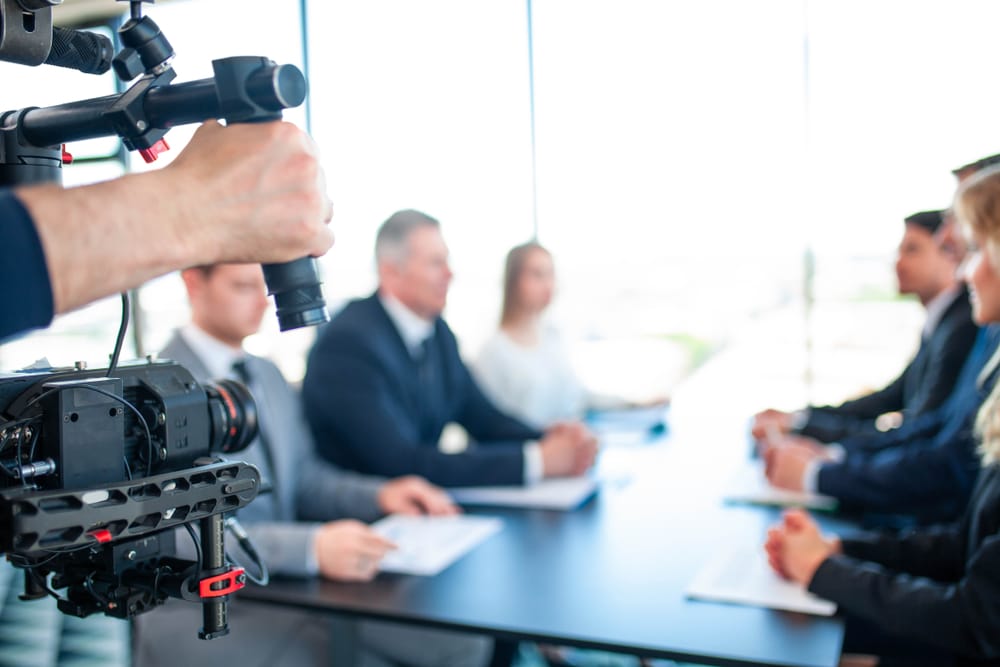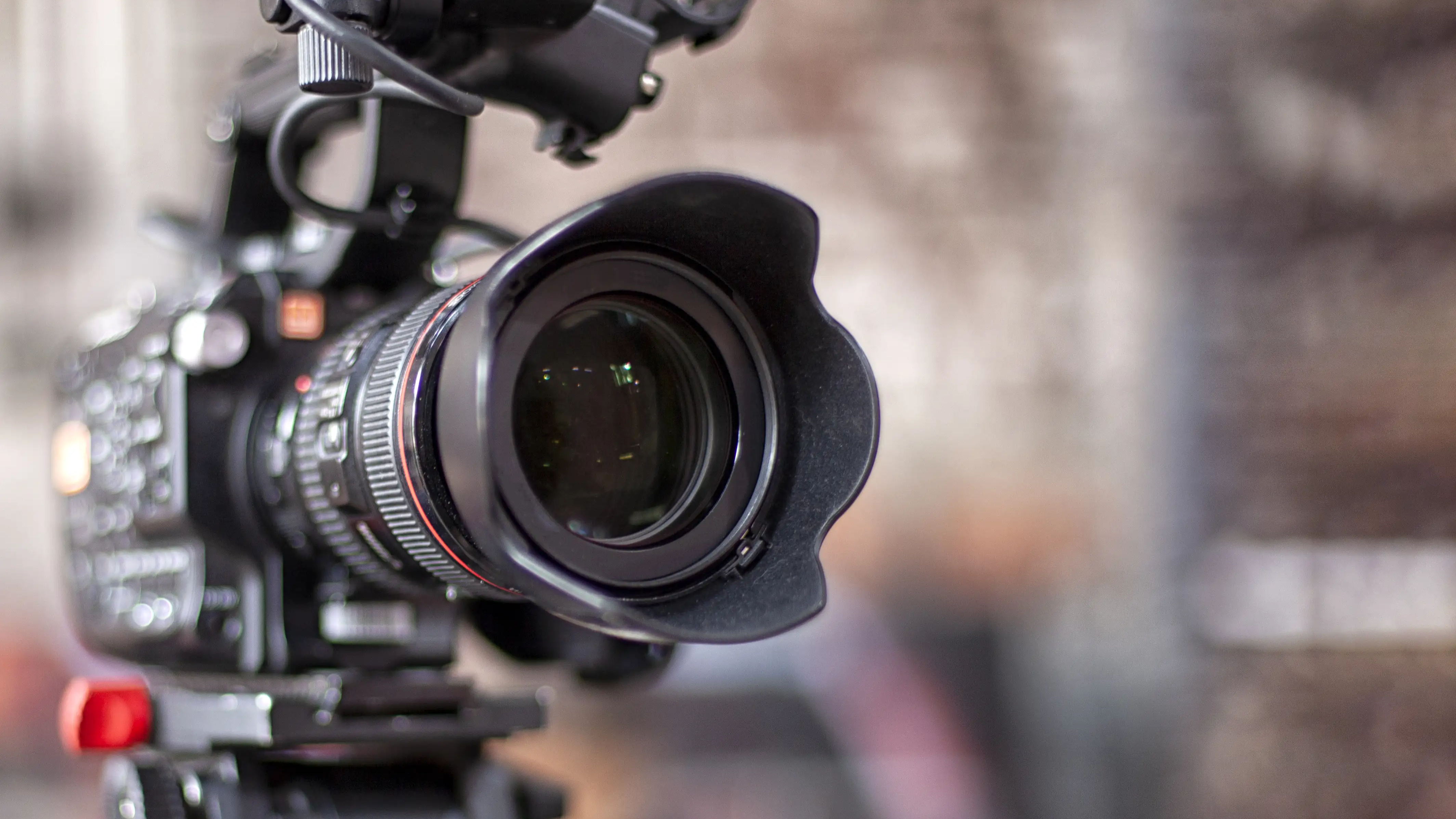Legal video depositions best practices: From lighting setup to audio clarity
The Importance of Lawful Video Clip Depositions in Modern Legal Solutions: What You Should Know
Lawful video clip depositions have become necessary in today's lawful landscape. They supply a multidimensional view of witness testimonies that typical records simply can not match. By recording both spoken and non-verbal communication, these depositions boost the general understanding of a witness's trustworthiness. The performance of video depositions pivots on various elements, consisting of conformity with legal standards and finest techniques. Checking out these aspects reveals their real value in contemporary legal services
What Are Lawful Video Depositions?
Legal video clip depositions offer as a crucial tool in the lawsuits procedure. They entail videotaping witness testaments in a video clip format, catching both non-verbal and spoken communication. This approach allows attorneys to document the temperament, expressions, and responses of witnesses, providing a richer context for the testament. Typically carried out in a controlled environment, these depositions are led by lawyers who ask inquiries while a court reporter records the dialogue. The resulting video clip can be critical for trial preparation, as it allows attorneys to examine the credibility of witnesses and refine their methods. In addition, lawful video clip depositions can be made use of in various lawful contexts, varying from civil disagreements to criminal situations. The acoustic and aesthetic components of video clip depositions boost the discussion of proof, making it a crucial part in the modern-day lawful landscape. On the whole, they add substantially to the performance and performance of lawful procedures.

Benefits of Video Clip Depositions Over Typical Approaches
Video clip depositions use many benefits compared to conventional methods of taking witness testimonies. One significant advantage is the capacity to catch both visual and audio elements, giving an extra complete document of the witness's statements. This dual style boosts quality and enables lawful experts to reference certain nuances throughout test preparation. Furthermore, video depositions facilitate remote engagement, making it easier for witnesses that may be unavailable for in-person looks because of geographical restraints or health and wellness issues.Moreover, video depositions can quicken the total deposition process, lowering the moment and costs connected with traveling and logistics. They also boost ease of access, as recorded depositions can be conveniently shared amongst legal groups and referenced at any moment. This ease adds to far better situation management and prep work. Overall, video clip depositions represent a contemporary, efficient approach to collecting witness statements, straightening with the developing demands of the legal occupation.
The Duty of Body Language and Tone in Testimonies

In lawful video depositions, body movement and tone play essential roles in communicating a witness's reputation and credibility. Nonverbal hints can give understandings right into a witness's emotional state, influencing just how their testimony is perceived. Comprehending the influence of these aspects is crucial for jurors and lawyers alike when evaluating the reliability of a statement.
Nonverbal Interaction Insights
While spoken interaction is often emphasized in legal testimonies, nonverbal hints such as body movement and tone play an essential function in sharing reputation and feeling. Observers of depositions may note that a witness's position, motions, and faces can greatly influence perceptions of integrity. For instance, regular eye get in touch with may signal confidence, while avoiding stare can recommend deceit or discomfort. The tone of voice-- its pace, pitch, and quantity-- can pass on sensations of genuineness or unpredictability. Attorneys must be in harmony with these nonverbal signals, as they commonly supply crucial context that complements talked words. Understanding these nuances can improve the effectiveness of depositions and affect the outcome of legal procedures.
Psychological Tone Impact
The psychological tone conveyed throughout lawful statements greatly influences just how a witness is viewed. Body language, vocal inflections, and faces play crucial roles fit the narrative of a testament. A witness displaying self-confidence through constant eye contact and a tranquil tone can instill a sense of integrity and interaction. Alternatively, signs of anxiousness, such as fidgeting or a shaky voice, may bring about hesitation concerning their account. The subtleties of emotional expression can affect the interpretation of truths, making it crucial for lawyers to acknowledge these cues. In video depositions, the acoustic and visual elements integrate, stressing the significance of emotional tone in communicating genuineness and reliability within the legal process.
Integrity and Trustworthiness
An important aspect in developing credibility and credibility throughout testaments exists in the witness's body movement and tone of voice. Observers commonly depend on non-verbal signs-- such as eye contact, position, and motions-- to analyze a witness's sincerity. A witness who preserves eye get in touch with and shows open body language may be perceived as even more trustworthy and straightforward than one who prevents eye get in touch with or appears closed off. Additionally, intonation plays a necessary function; a stable, calm tone can strengthen the trustworthiness of the statement, while variations in pitch or volume may raise doubts. Ultimately, the combination of body movement and singing tone significantly influences just how a witness's declarations are received and analyzed in a lawful context.
Best Practices for Performing Video Clip Depositions
Carrying out video depositions calls for cautious preparation and implementation to assure a efficient and clear presentation of testament. First, it is essential to choose a silent, well-lit place to minimize disturbances and protected optimum video clip quality. The tools ought to be tested in breakthrough, including cameras, microphones, and lighting, to prevent technological issues throughout the deposition.Next, parties involved have to review the style and treatments beforehand, making certain that every person understands their functions. The deponent needs to be oriented on the process, including exactly how to react clearly and concisely.Additionally, preserving a specialist disposition throughout the session is crucial. This consists of abstaining from speaking over each other and verifying that all questions are guided suitably. It is crucial to videotape the deposition in a format that allows for very easy playback and testimonial, preserving the stability of the testament for future use.
Lawful Considerations and Compliance Issues
Exactly how do legal considerations and conformity concerns impact the performance of video depositions? Lawful specialists should browse an intricate landscape of regulations, ensuring that video depositions follow jurisdictional policies and standards. Compliance with legislations worrying personal privacy, authorization, and videotaping techniques is necessary. Getting specific approval from all celebrations involved is essential to stay clear of legal repercussions.Additionally, the admissibility of video clip proof in court can pivot on conformity with procedural needs. Making sure that the tools utilized fulfills technological criteria is additionally vital, as low quality can threaten the deposition's reliability.Moreover, lawyers must be mindful of any type of particular state laws that check my reference govern video clip depositions, as these can differ considerably. Failure to resolve these considerations can not just endanger the integrity of the deposition however also influence the general case approach, eventually affecting the customer's legal outcomes.
How Video Clip Depositions Influence Jury Understanding
While video clip depositions can work as effective tools in legal proceedings, their influence on jury assumption is considerable. The aesthetic and auditory elements of video recordings give jurors with a much more thorough understanding of witness attitude, reliability, and psychological responses. This multimedia technique can boost the jurors' ability to analyze the reliability of testament compared to conventional text-based transcripts.Moreover, video clip depositions permit jurors to observe body language, tone of voice, and faces, all of which can influence their interpretation of the witness's statements. The existence of a witness on display can humanize them, cultivating empathy and connection, which may persuade jurors' point of views. Conversely, a witness who appears incredibly elusive or untrustworthy on video may result in unfavorable assumptions that affect a jury's decision. Inevitably, the dynamic nature of video clip depositions plays a vital role fit exactly how jurors analyze proof and reach their judgments.
The Future of Video Clip Depositions in Legal Technique
As advancements in technology remain to improve the lawful landscape, the future of video clip depositions is positioned for substantial advancement. Technologies such as expert system, online truth, and improved video clip conferencing tools are anticipated to simplify the deposition procedure and boost access. Lawful experts may YOURURL.com use AI-driven analytics to evaluate witness trustworthiness and situation stamina a lot more effectively.Moreover, the combination of virtual truth could permit juries to experience immersive simulations of depositions, giving deeper context and understanding. Additionally, the fad towards remote depositions is most likely to continue, providing greater adaptability for lawyers and clients alike.As remote job comes to be significantly stabilized, video depositions will likely this page become typical technique, minimizing costs and time constraints connected with traditional techniques. Generally, these technical improvements promise to boost the efficiency, effectiveness, and ease of access of video clip depositions in lawful technique, inevitably changing how attorneys plan for trial.
Regularly Asked Inquiries
Just How Much Do Lawful Video Clip Depositions Usually Expense?

Can Video Clip Depositions Be Utilized in Any Type Of Kind of Case?
Video depositions can be made use of in numerous kinds of cases, including civil, criminal, and family legislation. Their adaptability allows lawyers to existing witness testimonies successfully, adjusting to the particular requirements of different legal situations.
What Equipment Is Required for a Video Deposition?
To perform a video deposition, important devices consists of a high-quality video camera, microphone, lights, and a reliable recording device. In addition, a computer with modifying software may be essential for post-production and formatting the final video.
For how long Does a Typical Video Deposition Last?
A regular video deposition lasts between two to 4 hours, depending on the complexity of the case and the number of questions posed. Extended sessions may happen, but breaks are generally included for participant comfort.

Are Video Clip Depositions Admissible in Court?
Video clip depositions are usually permissible in court, given they comply with legal standards and guidelines of evidence. Their use boosts quality and protects witness testament, helping in the judicial procedure during hearings and trials. Lawful video depositions have come to be necessary in today's legal landscape. In addition, legal video clip depositions can be utilized in different legal contexts, varying from civil disagreements to criminal situations. In addition, video clip depositions assist in remote participation, making it easier for witnesses that might be not available for in-person looks due to geographical restrictions or wellness issues.Moreover, video depositions can expedite the total deposition procedure, decreasing the time and prices associated with travel and logistics. Guaranteeing that the equipment made use of satisfies technological standards is likewise crucial, as poor quality can weaken the deposition's reliability.Moreover, attorneys have to be conscious of any type of certain state regulations that govern video clip depositions, as these can vary substantially. Additionally, the pattern towards remote depositions is most likely to persist, offering better flexibility for lawyers and clients alike.As remote work comes to be progressively normalized, video depositions will likely come to be typical technique, decreasing prices and time constraints connected with traditional approaches.